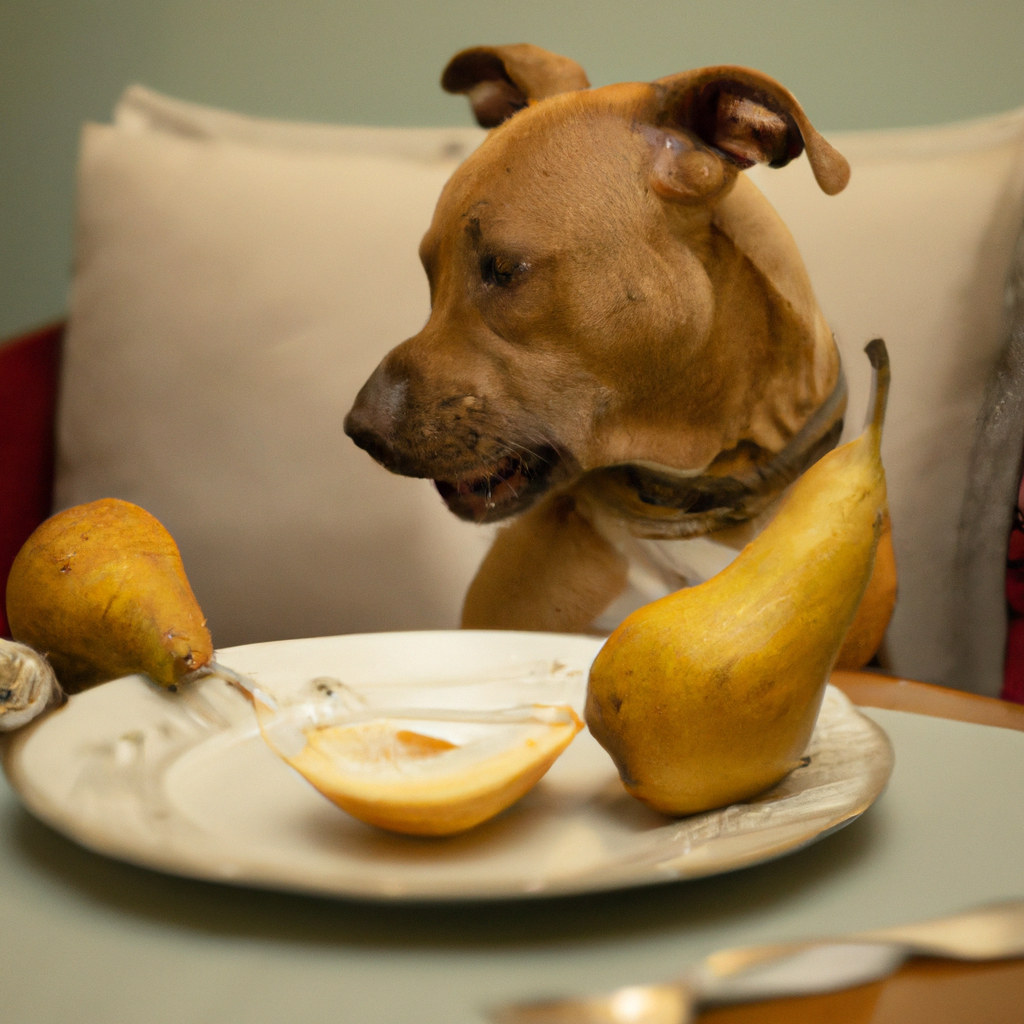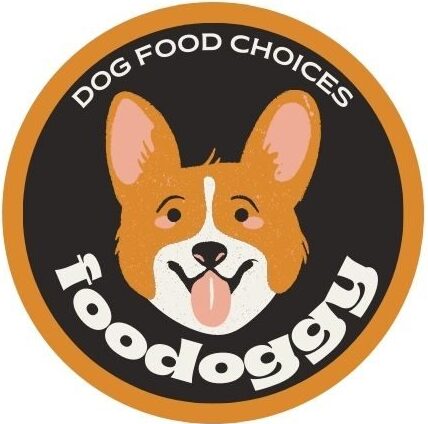As a dog owner, you want the best for your furry friend. You carefully select their food, ensuring it is nutritious and safe. But what about pears? Can dog eat pear skin? The answer is a resounding yes! Not only can they eat it, but it also offers numerous health benefits for your beloved companion.
Firstly, pear skin is packed with fiber, aiding in digestion and promoting a healthy gut. This high-fiber content can help prevent constipation and regulate bowel movements, ensuring your dog stays regular and comfortable. Secondly, the skin is a rich source of antioxidants, combating free radicals and reducing the risk of chronic diseases like cancer. By including pear skin in your dog’s diet, you are enhancing their immune system and promoting longevity.

Can Dogs Eat Pear?
In conclusion, dogs can safely enjoy pears as part of their balanced diet. Not only are pears a tasty and refreshing treat for our furry friends, but they also offer a range of health benefits. From promoting digestive health to boosting the immune system, pears are packed with essential nutrients that can support your dog’s overall well-being.
However, it is crucial to remember that moderation is key. While pears are generally safe for dogs to consume, they should be given in small quantities and without the core, seeds, or stem. These parts of the pear can pose a choking hazard or contain toxins that could harm your dog.
If you are unsure about introducing pears into your dog’s diet, it is always best to consult with your veterinarian. They can provide personalized advice based on your dog’s specific needs and health condition. So, why not treat your four-legged companion to a delicious and nutritious pear? Your dog will appreciate the tasty reward, and you can feel confident knowing you are providing them with a healthy snack option.
Is Pear Skin Okay for Dogs?
Is Pear Skin okay for Dogs? Pear skin offers a variety of nutritional benefits for dogs. It contains essential vitamins, minerals, and fiber that can contribute to their overall health. Feeding pear skin to dogs can potentially improve their immune system, promote healthy digestion, and support weight management. However, it is crucial to be aware of the potential risks and dangers. Pear skin may contain pesticide residue or be a choking hazard if not prepared properly. To ensure safety and optimal digestion, it is best to wash the pear thoroughly, remove the seeds and core, and finely chop or puree the skin before feeding it to your furry friend.
When it comes to feeding pear skin to your furry friend, it’s essential to consider its nutritional value. Pear skin is a rich source of fiber, vitamin C, and antioxidants. These nutrients contribute to a strong immune system, healthy digestion, and overall well-being in dogs.
The potential benefits of pear skin for dogs are numerous. The fiber content aids in regulating bowel movements and preventing constipation. Vitamin C supports collagen production, joint health, and wound healing. Antioxidants help combat inflammation and protect cells from damage.
However, there are also potential risks or dangers associated with feeding pear skin to dogs.
Is Pear Toxic to Dogs?
Many dog owners wonder whether pears are safe for their furry friends. While pears themselves are not toxic to dogs, pear skin can be problematic. Dogs may have allergies or sensitivities towards pear skin, leading to digestive issues or skin irritations. However, it’s important to note that pear skin also contains nutritional benefits for dogs, such as fiber and vitamins. If you decide to feed your dog pear skin, precautions should be taken, like washing and removing the core. Alternatively, you can opt for safe alternatives like pear
Can Pear Make a Dog Sick?
It is crucial for dog owners to be aware of the potential risks associated with feeding their furry friends certain foods. While pears are generally considered safe for dogs, it is important to exercise caution when it comes to their consumption. Feeding your dog excessive amounts of pear, including the skin, can lead to an upset stomach, diarrhea, or even more severe gastrointestinal issues. Dogs have different digestive systems than humans, and certain fruits, including pears, can be difficult for them to digest in large quantities. Additionally, the high sugar content in pears can cause spikes in blood sugar levels, particularly in dogs with diabetes.
Can Dogs Eat Pear Stalk?
Do you know that the stalk of a pear can be a delicious and nutritious treat for your furry friend? While we have established that pears themselves are safe for dogs to consume, the question remains: can dogs eat pear stalks? The answer is a resounding yes! Not only are pear stalks safe for dogs, but they also offer a range of health benefits.
Firstly, pear stalks are a great source of fiber, which aids in digestion and can prevent constipation in dogs. Additionally, they contain vitamin C, an essential nutrient that boosts the immune system and promotes overall health. By incorporating pear stalks into your dog’s diet, you can help support their immune system and keep them healthy and strong.
However, it is important to note that the pear stalks should be given in moderation. Too much fiber can lead to digestive issues such as diarrhea. As with any new food introduction, it is recommended to start with small amounts and monitor your dog’s reaction.
Read more about banana peel and dried blueberries for dogs
Health Benefits of Pears for Dogs
Now that we know that dogs can safely consume pears, let’s delve into the numerous health benefits that this delicious fruit can provide for our furry friends. Packed with essential vitamins, minerals, and fiber, pears offer a range of advantages that can contribute to your dog’s overall well-being.
First and foremost, pears are a fantastic source of hydration for dogs. With their high water content, they can help keep your canine companion properly hydrated, especially during hot summer months or after vigorous physical activity. Additionally, the fiber found in pears promotes digestive health by aiding in regular bowel movements and preventing constipation.
Furthermore, pears are rich in antioxidants, such as vitamin C and vitamin K, which play a crucial role in boosting your dog’s immune system. These antioxidants help to combat harmful free radicals in the body and reduce the risk of chronic diseases.
Not only do pears provide immune support, but they also contribute to heart health.
Risks of Pears when Giving to Dog
While it’s true that pears can offer various health benefits to your furry friend, it’s crucial to be aware of the potential risks they may pose. Before you reach for that juicy pear to share with your dog, take a moment to consider the following information.
One of the main concerns when it comes to giving pears to dogs is their sugar content. Pears are naturally sweet, which means they contain a significant amount of sugar. While this may not seem like a big deal at first, too much sugar in a dog’s diet can lead to weight gain, dental issues, and even diabetes. It’s important to remember that dogs have different dietary needs than humans, and their bodies may not process sugars as efficiently.
Another risk to be aware of is the potential for choking or gastrointestinal blockage. Pears have a firm texture, making them easy to swallow whole. This can be especially dangerous for small dogs or those who tend to gulp their food. Ingesting large pieces of pear or the seeds can lead to choking or blockages in the digestive system.
How Much Pear Can Dogs Eat?
In conclusion, while there are risks associated with feeding pears to dogs, it is important to consider the benefits as well. Moderation is key when it comes to feeding fruits to our furry friends, and pears are no exception. When given in appropriate portions, pears can offer several health benefits for dogs.
Firstly, pears are a great source of fiber, which can aid in digestion and regulate bowel movements. This is especially beneficial for dogs who may struggle with constipation or other digestive issues. Additionally, pears contain vitamin C and antioxidants, which can support a strong immune system and overall health.
When introducing pears into your dog’s diet, it is important to monitor their reaction. Start by offering a small slice and observe for any signs of digestive discomfort or allergic reactions. If your dog shows no adverse effects, you can gradually increase the amount of pear they consume.
Remember, variety is key in a balanced diet for dogs.
Can Dogs Eat Canned Pears?
Now that we’ve discussed how much pear dogs can eat, let’s explore another intriguing question: can dogs eat canned pears? While fresh pears can be a healthy and delicious treat for our furry friends, it’s important to exercise caution when it comes to canned pears.
Canned pears often contain added sugars, preservatives, and artificial sweeteners that can be harmful to dogs. These additives can lead to digestive issues, such as diarrhea or upset stomachs. Furthermore, the syrup in canned pears can be high in calories, which can contribute to weight gain and obesity in dogs if consumed in excess.
To ensure the well-being of your canine companion, it is best to avoid feeding them canned pears. Instead, stick to offering them fresh, ripe pears as an occasional treat. Fresh pears provide essential vitamins, minerals, and fiber, which can promote a healthy digestive system and provide a natural source of hydration.
Remember, it’s always crucial to consult with your veterinarian before introducing any new food into your dog’s diet.
Conclusion
In conclusion, dogs can safely eat pear skin. The skin of a pear is packed with essential nutrients and fiber, making it a healthy addition to your furry friend’s diet. However, it’s important to note that pear seeds and stems should be avoided, as they can be toxic to dogs.
Feeding your dog pears in moderation can provide numerous health benefits. Pears are a great source of vitamins, minerals, and antioxidants, which can support your dog’s immune system and promote overall well-being. Additionally, the high fiber content in pears can aid in digestion and help prevent constipation.
While pears can be a nutritious treat for your dog, it’s crucial to remember that they should be given in moderation. Too much pear consumption can lead to an upset stomach or diarrhea.
